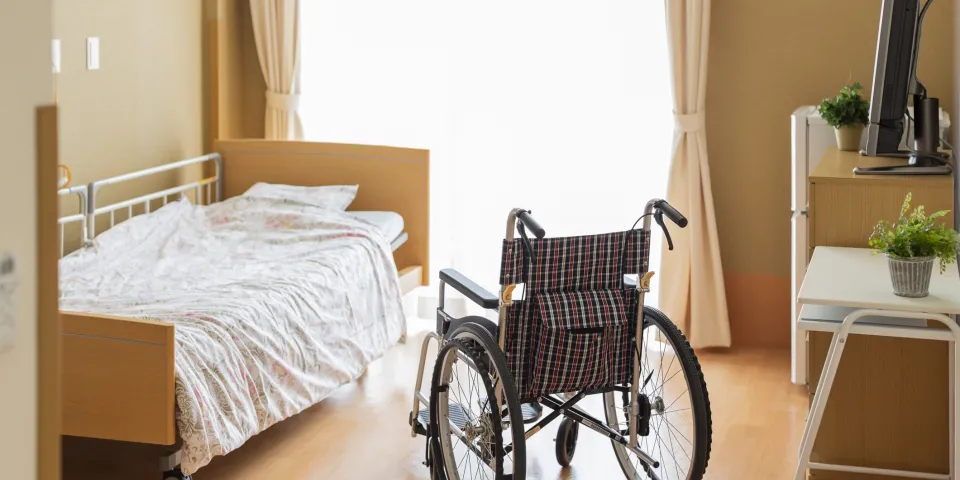Latest
Working as a Nurse in an Assisted Living Facility
Nov 15, 2021

There are a wide variety of places a nurse can work, from large hospitals to small physician’s offices. One that’s not always considered but has sizeable growth potential is assisted living facilities.
Assisted living facilities provide enhanced long-term housing and care for individuals who are generally active but who can no longer live independently. Assisted living facilities provide for personal health care needs, conduct a variety of activities, and help individuals live as independently as possible in a safe, controlled environment.
These facilities rely on nurses to take a lead role in maintaining the well-being of residents. The need for nurses is likely to increase, as US Census figures project that the number of Americans age 65 or older will nearly double from 2016 to 2060.
Who Works in an Assisted Living Facility?
Healthcare workers at assisted living facilities could include registered nurses (RN), licensed practical nurses (LPN), certified nursing assistants (CNA), and sometimes nurse practitioners (NP). Their responsibilities vary, but all are connected by the goal of providing comprehensive care for their residents.
Working under the supervision of RNs and physicians, LPNs monitor patients, administer first aid and update health records. LPNs and RNs supervise CNAs, who provide basic care and assist patients with daily living tasks.
Responsibilities of an Assisted Living Nurses
While the day-to-day schedule of an assisted living nurse is more predictable than that of a hospital nurse, no day is completely the same. Some of the general responsibilities of assisted living nurses are:
- Conducting health examinations
- Administering medication and monitoring the well-being of patients
- Corresponding with family members
- Organizing schedules of both patients and staff
- Creating wellness and exercise programs
- Coordinating with external healthcare professionals
While a large part of a nurse's job is to administer medicine and treatment to patients, an assisted living nurse’s responsibilities extend beyond physical treatment. Nurses in assisted care facilities see the same residents every day and can build strong relationships with residents. Because of this, soft skills such as patience, communication, and compassion are valued by residents and their families.
Also, strong organizational skills are vital for nurses to stay on top of patient care. Assisted living nurses are responsible for creating programs for patients, as well as designating schedules for the staff.
Day-To-Day Schedule
Nurses in an assisted care facility can work a variety of shifts. Some work typical 8-hour shifts five days a week while others are in for 12-hour shifts three a week. These shifts commonly take the form of both day and night shifts and run from 7 a.m. to 7 p.m.
Benefits of Working in an Assisted Living Facility
Here are some of the benefits of working in an assisted living facility:
- Structured Duties: Employees in assisted living facilities generally have a more structured than someone working in a hospital setting. Most nurses have a routine they follow, doing a combination of patient care, which includes medical assessments, and general personal care.
- Sense of Community: Assisted living nurses see the same residents and staff each day, which results in a strong sense of community within the facility. Because of the connections you will build while working at an assisted living complex, it can quickly become a second home for you.
- Feeling Fulfilled: A feeling of fulfillment often drives nurses who work in an assisted living facility, as they get to use their skills to help those in need. Herzing University graduate Aminata Kuyateh always had a passion for helping people and found a way to combine her passion with her career as a CNA in a nursing home.
“Working with the elderly made me think back to when I was a young kid who always liked to help people. I decided that I wanted to become a CNA,” said Kuyateh. “Years later, I started pursuing my bachelor’s degree in nursing at Herzing University, and now here I am a nursing graduate!”
If you are wondering how to use your nursing degree, consider a career in an assisted living facility. Not only will you enjoy a more predictable schedule, but you will also benefit from a close-knit work environment with residents and staff. Above all, you will be able to apply your passion for nursing to enhance the life of individuals who are looking to remain as independent as possible.
Learn More About Our Nursing Programs
BLS pay estimates calculate the median annual wage for various occupations. Per the BLS the median wage for an occupation is: "The wage at which half of the workers in the occupation earned more than that amount, and half earned less. Median wage data are from the BLS Occupational Employment and Wage Statistics survey." Bureau of Labor Statistics (BLS), U.S. Department of Labor, Occupational Outlook Handbook 2024. BLS median wage estimates do not represent entry-level wages and/or salaries. Multiple factors, including prior experience, age, geographic market in which you want to work, and degree level and field, will affect career outcomes, including starting salary and earnings as an experienced employee. Herzing neither represents that its graduates will earn the median salaries calculated by BLS for a particular job nor guarantees that graduation from its program will result in a job, promotion, particular wage or salary, or other career growth.
Latest
Recent Blog Posts
Subscribe to our Newsletter
Get the latest news you need to know, from study hacks to interview tips to career advancement. Have it delivered right to your inbox biweekly.








